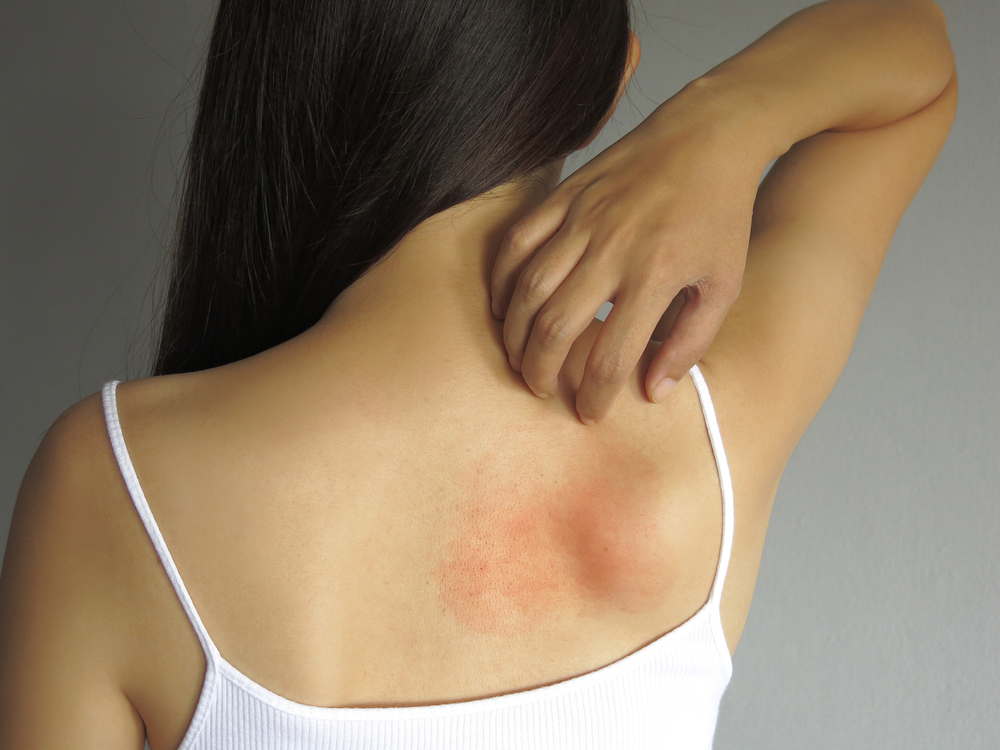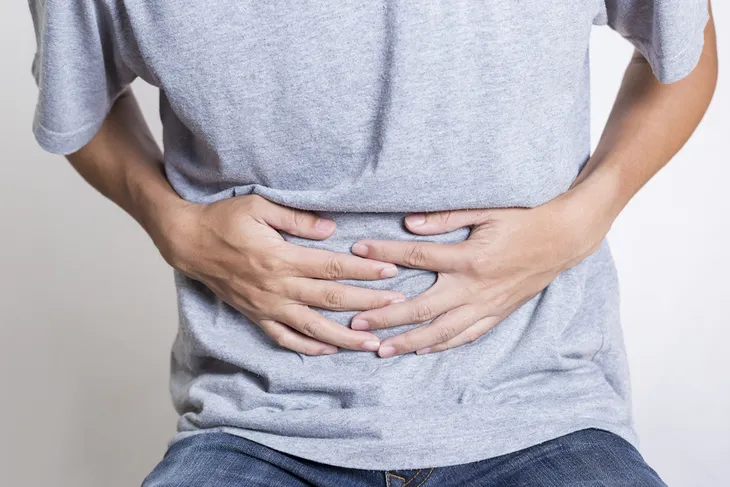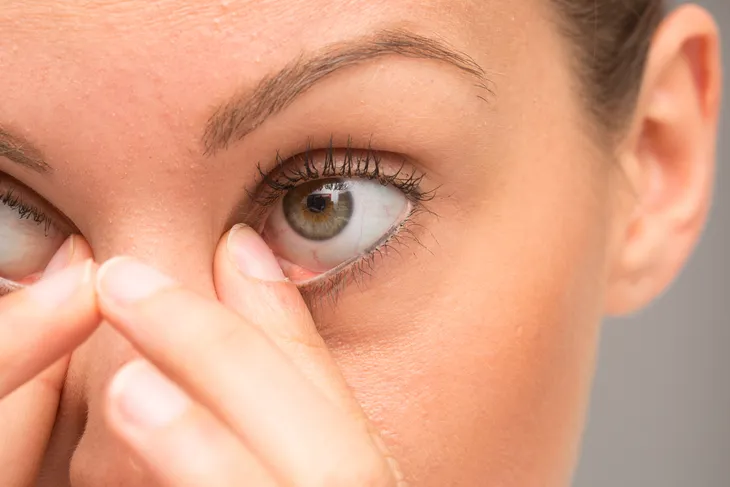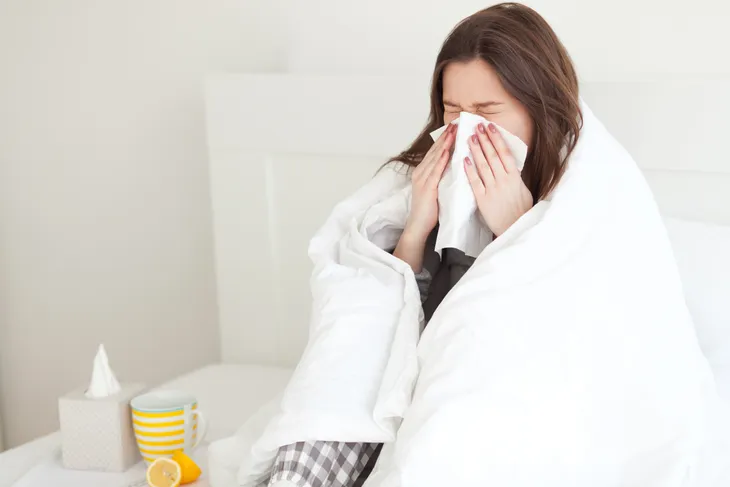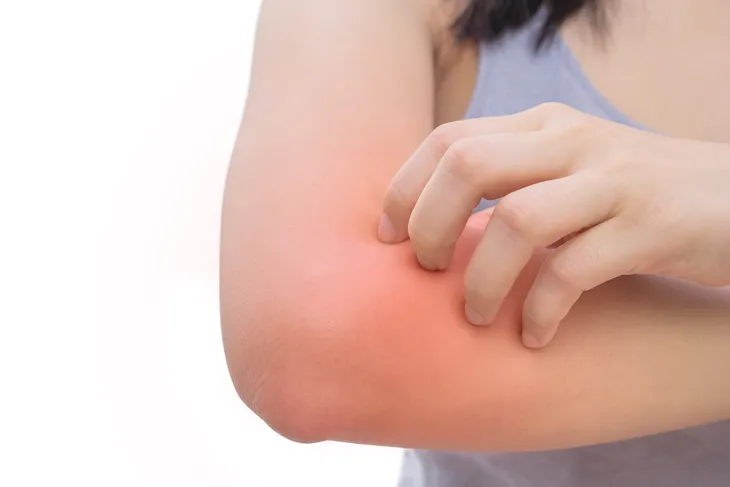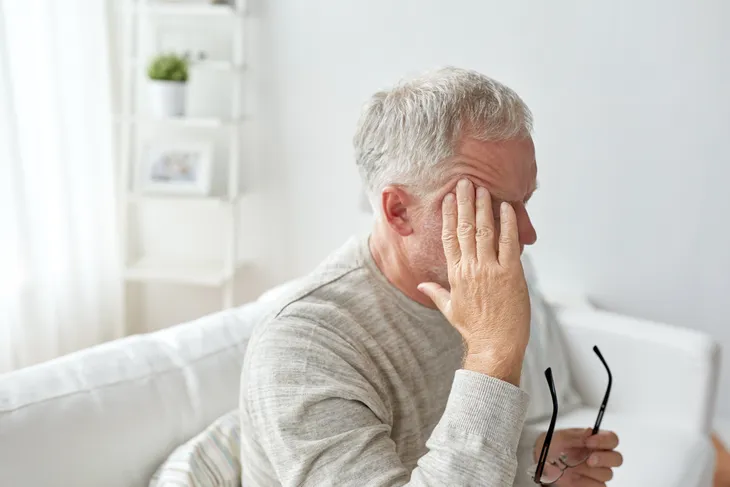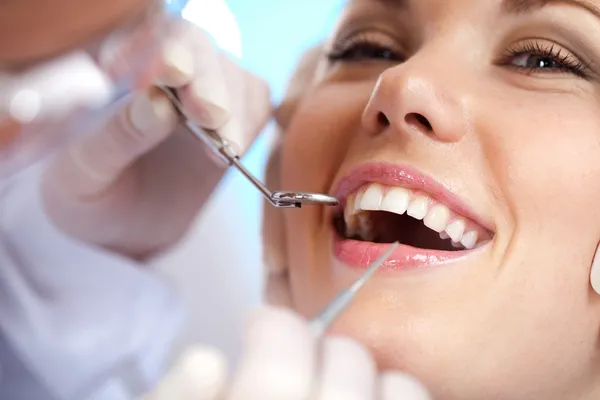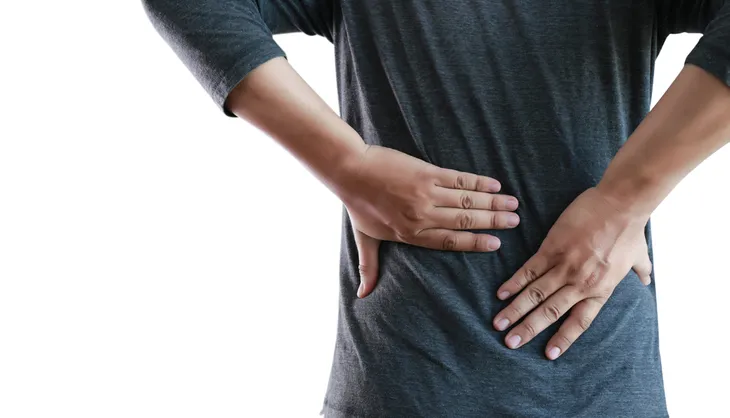We all get stressed from time to time which can cause moments of anxiety and worry. While a little bit of stress is normal, being stressed on a regular basis can have a physical impact, particularly if the stress is chronic. When a person is chronically stressed, it can have a major impact on their everyday life, including overall health and well-being.
There are some common emotional and physical symptoms of stress, like panic attacks and headaches, but also a lot of uncommon symptoms that you might be experiencing and aren’t even aware that they are related to stress. Be on the lookout for these 15 surprising signs and symptoms of stress…
Bizarre and Recurring Dreams
Vivid and bizarre dreams, or even experiencing the same dreams night after night is a possible sign of stress. Whether you enjoy or easily tolerate weird dreams, it’s important to examine any of the potential reasons behind them.
Recurring dreams can take a toll on you mentally–especially if they’re upsetting–but even if they aren’t. Bizarre dreams can make you feel tired and on edge, which ultimately impact other areas of your life, like work and family. If you’ve started dreaming a lot, and if they’re bizarre and/or recurring dreams, take stock of any life changes or added stress to see if there’s a trigger.
Jaw and Tooth Pain
Stress is something many people sweep under the rug to get through the day, but at night your subconscious might not be so kind as to keep it at the back of your mind, which could lead to teeth grinding. Once you’re asleep, you can’t help what your body does, but you’ll definitely feel it the next morning!
While it’s common to “grind the stress out,” it’s not a good way to deal with it. Not only does it create discomfort by giving you a sore jaw, it can cause permanent damage to your teeth. If your jaw, gums or mouth are sore, try to analyze how your body is reacting to stress, and whether or not you’re tensing up and clenching your jaw. If it becomes a regular problem, talk to your dentist. He/she can set you up with a mouth guard that will prevent any further wear and tear to your teeth.
Hair Loss and Changes
Many men and women lose quite a bit of hair during and after showers, as well as when using a brush or comb (in fact the average person sheds around 100 hairs a day). Before you write off any major hair loss as age-related or just the way your body is, consider stress as the culprit. According to the Mayo Clinic, stress can put your hair follicles into a resting stage, causing those strands of hair to fall out a few months later. A stressful event like losing your job or a break-up can cause our androgens hormones to spike which can affect our hair follicles and lead to temporary hair loss.
In addition to losing hair, stress can cause your hair to prematurely gray. This is also linked to genes, but if you’re already genetically wired to go grey, any kind of stress or traumatic event can speed up the process. “Stress can cause white blood cells to attack the hair follicle and stop growth, as well as put hair follicles into a ‘resting phase,’ so hairs fall out during washing or combing,” writes Shape. In extreme cases, some people can suffer from trichotillomania which is the irresistible urge to pull out hair from the scalp, eyebrows, or any other areas of the body.
Stomachaches and Intestinal Problems
Many people don’t realize just how much the gut is in tune with our brain. It’s actually linked to the brain’s nervous system which is why we get that butterfly feeling in our stomach when we’re nervous. It usually doesn’t cause problems to our overall health, but it can if you’re someone who is constantly stressed. It can cause constant stomach aches, diarrhea, irritable bowel syndrome (IBS), ulcers and food allergies. Women’s Health points out that treatment depends on what exactly your tummy troubles are. Prescription meds are good for nausea, but there are plenty of over-the-counter drugs like stool softeners for constipation, or just simple dietary changes to get more fiber or relieve IBS symptoms.
Truthfully, the best remedy for an upset stomach or digestive issues is, believe it or not, exercise. It might sound like the last thing you want to do when you’re doubled over in pain and shifting around in discomfort, but it can boost the endorphins needed to make your gut feel better.
Twitching
Muscle twitching, especially around the eyes, is actually connected to your stress level. But don’t fret — it’s totally normal! In fact, it’s quite common. According to the Mayo Clinic, stress can cause eyelid spasms. While twitching isn’t painful, it can be really annoying and distracting, and could go on for just a few minutes or for several months. Strangely, doctors still aren’t sure why stress causes these twitches around our eyes. Women’s Health offers up some good advice on how to deal with it if it does happen. “Close your eyes, try to relax, and breathe deeply. Inhale for four seconds, hold your breath for seven seconds, then exhale for eight seconds. Repeat this four times while using a fingertip to put mild pressure on the lid that’s twitching.”
Anne Sumers, M.D., of the American Academy of Ophthalmology also suggests using over-the-counter artificial tears to help ease the symptoms, especially if you also experience dry eyes. And if the twitching spreads to any other areas of your face, go see a physician.
Acne
In addition to causing skin rashes and irritations, stress can cause acne. This happens because similar to our hair, our skin is sensitive to changes in androgens, especially when they’re at higher levels than usual. People also tend to touch their face more when their stressed out which spreads bacteria. Constant breakouts in acne are more than just a nuisance, the inflammation can cause scarring, so it’s important to talk to your doctor if it’s recurring. Always remember to resist the urge to touch or pop them because that can just irritate the skin even more!
According to Women’s Health there are a few options for treatment. You can use oral or topical prescription meds or try unplugging the pores by wiping the bacteria away with certain soaps. Stay away from anything non comedogenic, especially when it comes to picking makeup, moisturizers, and sunscreen.
Regular Illness
The common cold and flu passes through every town, office, school and family at some point. But if you find yourself getting sick more than the average person and seemingly catching every virus that crosses your path, then the real culprit might be stress. There have been many studies conducted to prove that chronic stress lowers a person’s immune system, thus making them more susceptible to sickness.
Healthline cites one particular study that observed 61 adults who were injected with the flu vaccine. The subjects who suffered from chronic stress had a weaker immune response to the vaccine and another study compared 235 adults from either high or low stress groups. The high stress group had 70-percent more respiratory infections and almost 61 percent more days of symptoms than their counterpart group.
Why does this happen? When we’re stressed our body releases the hormone cortisol which affects the body’s inflammatory response so that it can fight off whatever is causing the stress in the first place. Time magazine talked to Sheldon Cohen, Ph.D., a professor of psychology at Carnegie Mellon University in Pittsburgh and said, “Stressed people’s immune cells become less sensitive to cortisol. They’re unable to regulate the inflammatory response, and therefore, when they’re exposed to a virus, they’re more likely to develop a cold.”
Irregular Periods and Severe Cramps
Monthly periods, complete with cramping, cravings and hormonal changes, can already be unpleasant and inconvenient. But if you’re stressed, your period can become more than a hassle with severe cramps that make you unable to do much of anything other than lie in bed. Not only that, but the irregularity keeps you guessing and paranoid about when your cycle is going to come.
Stress can even cause your period to completely stop, a condition called secondary amenorrhea. The imbalance of hormones when you’re stressed is unhealthy for your body, and could even cause infertility problems. Exercising will help ease the pain and reduce some of your stress.
Itchy Skin and Rashes
If your skin is moisturized and you’re still constantly scratching it, or if a previous skin condition that you thought was under control comes back more severely, it could be due to stress. These flare-ups and mysterious rashes are a chain reaction to the immune system being thrown out of whack. It’s the skin’s line of defense. When the immune system is lowered, we become susceptible to “rash-causing skin infections caused by staph,” says Women’s Health. The same thing happens if the immune system goes into overdrive. The skin becomes more sensitive which allows for preexisting conditions to reappear.
Roberta Sengelmann, M.D., a dermatologist in Santa Barbara, California told the source that ointments and gentle moisturizers should help in the healing process, but if they don’t, “or the rash is accompanied by a fever or other flu-like symptoms — chills, sweating — see your doctor right away.”
Abdominal Fat
It already seems next to impossible to blast that dreaded belly fat through exercise and healthy living, and stress can add to this difficulty. Chronic stress can cause abdominal fat and make it extremely difficult or impossible to trim it down and get rid of it – unless you decrease and manage your stress better.
When you’re stressed out, your body tries to protect itself by releasing adrenaline and cortisol, making you feel hungry. These hunger and cravings are often for carbs and fat which go straight to your waistline. It also causes loss of muscle mass, adding to your soft belly.
Headaches
This one isn’t all that unusual, especially considering there is literally a type of headache called ‘tension headaches.’ Healthline cites several studies that prove a stressful event can trigger headaches. For example, one study that examined 257 people who suffered from chronic headaches and found that 45-percent of them began experiencing their headaches following a major stressful event. “A larger study showed that increased stress intensity was associated with an increase in the number of headache days experienced per month,” says Healthline.
The last sourced study looked at 157 military service members at a headache clinic and found that 67 percent of them attributed their headaches to stress, which puts stress at the second most common headache trigger. The source also notes that other common causes of headaches are lack of sleep, alcohol, and dehydration.
Bleeding Gums
Bleeding gums can be a result of more than just irresponsible flossing. A Brazilian analysis looked at 14 former studies and found that people who experience higher levels of stress are at a higher risk of developing periodontal disease. “Chronically elevated levels of the stress hormone cortisol may impair the immune system and allow bacteria to invade the gums,” writes Prevention.
So how do we protect our teeth from stress? If you’re someone who works long hours and eats meals at your desk, then keep a toothbrush on hand. “Protect your mouth by exercising and sleeping more, which will help lower stress,” says Preston Miller, DDS, past president of the American Academy of Periodontology, to Prevention.
Back Pain
It’s possible to experience back pain when you’re stressed out because of the hormones our body instinctively pumps out when we’re put in that fight or flight mode. It raises your blood pressure and heart rate, thus tightening muscles. “If you’re trying to outrun a predator, that’s good,” says Joanne Borgstein, M.D., of Harvard’s Spaulding Rehabilitation Hospital to Women’s Health magazine. “But if it’s all the time, that sort of chronic stress response can lead to pain.”
The best remedy for back pain is to move around and stretch. This is especially important if you work at a job that requires you to sit at a desk all day long. Remember to take breaks and go for a quick 10 to 15 minute walk once or twice a day. In addition to that, stretch your body once in a while by reaching your arms above your head, reach down and touch your toes from a standing position, and roll your neck and shoulders to release tension.
Fatigue
We all get tired from time to time, but if you’re constantly suffering from fatigue and seemingly never able to get a good night’s sleep, then there’s probably more to it. “Fatigue can be a symptom of anxiety,” says psychiatrist Dr. Susan Edelman to Bustle. “It can be tiring to feel anxious, especially if you’re having any trouble sleeping. People may have difficulty falling asleep, staying asleep, or experience restless sleep.”
This claim is backed up by several studies cited by Healthline. The first study looked at people with work-related stress who experienced more restlessness at bedtime. There was also another study of 2,316 participants that showed “experiencing a higher number of stressful events was significantly associated with an increased risk of insomnia.”
Tense Muscles
The feeling of tight or tense muscles isn’t necessarily from exercise or sleeping funny — it could be due to stress. Stress can even go as far as triggering muscle spasms which can be extremely painful! According to psychologist Dr. Iris Pachler who spoke to Bustle, stiff muscles can be a result of anxiety.
“Often we can be so used to holding tension that we don’t even realize it. Progressive muscle relaxation can help identify this. This is done by tightening and then releasing one muscle group at a time — jaw, neck, shoulders, belly, back.”
